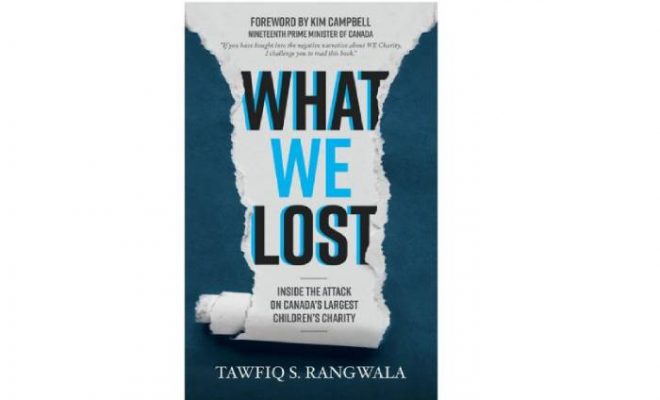What WE Lost – Chopping the tallest poppy, when success is no longer celebrated

In the new book, What WE Lost – Inside the Attack on Canada’s Largest Children’s Charity, author Tawfiq Rangwala posits that one of the driving forces behind the takedown of WE Charity in 2020-2021 was “tall poppy syndrome.”
The phenomenon refers to a societal attitude in which people are resented, disliked or criticized due to their successes. Rather than celebrate the achievements of “the tallest poppy” or trying to raise others up to the same level, a cynical society tries to chop the poppy down so that it no longer stands out.
It is hard to imagine a more fitting example than what occurred with WE Charity and its founders, Marc and Craig Kielburger.
The brothers, who launched an internationally-celebrated charity while still in their teens, went on to share stages around the globe with celebrities and world leaders that would make even the most successful Canadians envious.
Couple that with their relentless optimism and words of inspiration, hope and desire to change the world and you have a cynic’s ultimate foil.
As a board member of WE Charity at the time, Rangwala had a front row seat to the media and political circus in which the tall poppy syndrome was on full display. In the book, he writes, “The bottom line is that for a subset of Canadians who had watched the Kielburgers with a mix of amazement and jealousy, the CSSG controversy and ensuing avalanche of criticism provided the aha moment they had long hoped for: ‘Just as I suspected—too good to be true.’”
What does it say about the state of our society when so many cheer when we chop down these poppies?
Rangwala does not pretend to have the answer to that question, but his book offers a poignant examination of the issues, and cautions that if we so gleefully take down those trying to do good in our society, we may have strayed far away from what it means to be Canadian.
What WE Lost – Inside the Attack on Canada’s Largest Children’s Charity is available where books are sold.
This editorial does not necessarily reflect the views of The Ottawa Star and its agents.








